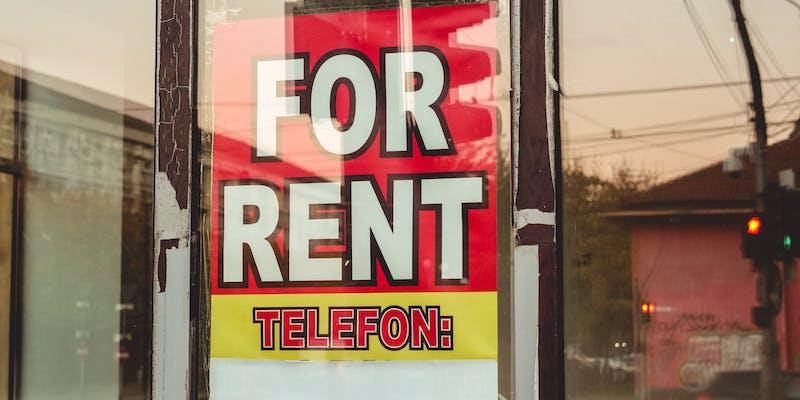Renting vs. Buying: Financial Comparison of Its Benefits and Drawbacks
Susan Kelly
Dec 10, 2023
Your landlord charges you a monthly rent to live in their home. This payment covers the rent, and the best part is that the landlord handles maintenance and repairs. A six-month or one-year lease is typical for renting. You can renew your lease or move when that time's up.
Let's talk numbers. Lower upfront costs make renting attractive. Small down payments—security deposits and first months' rent—are typical. If your job keeps you moving or you're not ready to settle down, renting may be a good choice. If you're struggling financially, rent assistance programs can help. Rent can rise, and you won't build equity like with a home.
Renting a Place
You pay a landlord a monthly rent when you rent. Their fee covers living there. The landlord maintains and repairs the property. A six-month or one-year lease is typical for renting. After this time, you can renew the lease or move. Many tenants benefit from rent assistance, making rentals cheaper. Rentals allow you to move without selling a home.
Benefits of Property Rental
Ease of Moving
Renting a home makes moving more accessible than ever. Tenants can move after their lease ends. This helps people who need to move for work, family, or a change of scenery. This convenience comes from renters not having to sell a property like homeowners.
Less Initial Cost
Renting has many benefits, including lower initial costs. Leasing requires a security deposit and the first month's rent, unlike buying a home, which requires a large down payment and other fees. This makes purchasing a house more affordable, especially for those without large down payments.
Maintenance-Free
Living without maintenance and repairs is a significant benefit of renting. This saves renters time, money, and stress. Most rental agreements require the landlord to handle repairs and maintenance, allowing renters to relax without worrying about unexpected costs.
Stable Value
Renters avoid housing market fluctuations' financial risks. They are unaffected by property value decline, a common concern for homeowners, especially during economic downturns. Stability gives you peace of mind that your investment is not market-sensitive.
Drawbacks of Home Rentals

Lack of Investment Growth
Renting a home prevents investment growth. Renters don't build equity like homeowners. This means rental money doesn't help future profits. The long-term financial impact of living there is a significant drawback.
Rising Rental Costs
A significant concern for renters is the potential rent increase. As the rental market fluctuates, landlords may raise the rent, especially when renewing leases. This unpredictability can strain your budget, making it challenging to plan long-term finances. Rent assistance programs can sometimes help, but they don't address the root issue of escalating rental costs.
Absence of Tax Advantages
Homeownership comes with tax benefits, like deductions on mortgage interest and property taxes. Unfortunately, renters don't enjoy these advantages. This absence of tax perks means that renters often miss out on opportunities to reduce their annual tax burden, a benefit that home buyers usually appreciate.
Restricted Freedom in Home Alterations
Home renters have limited freedom to customize their spaces. Significant changes are usually prohibited. Personalizing a home can be frustrating due to this restriction. However, homebuyers can customize their space.
Buying a Home

Buying a home is enormous. It often requires a mortgage, a long-term loan for homebuying. You, as the buyer, must maintain and repair the property. Most mortgages last 15–30 years. After paying off, the property is yours. Buyers must consider mortgage rates and long-term commitment to one location. Beyond the mortgage, homeownership costs taxes and insurance, but it can be a good investment.
Benefits of Home Purchase
Growing Your Financial Assets Through Home Ownership
When you buy a house, you gradually increase your financial assets. Each payment on your mortgage means you own a bit more of your home. This process, known as building equity, boosts your overall net worth. It's different from rentals, where payments don't lead to ownership. Over time, as you keep making payments, your stake in the property grows, enhancing your financial standing.
Homeowner Tax Savings
Tax benefits are one advantage of home ownership over renting. Mortgage interest and property taxes are often tax-deductible for homeowners. This can reduce taxes, making homeownership more affordable over time. Despite rent assistance programs, renters rarely have this financial advantage.
Freedom to Customize Home
Owning a home lets you customize your living space to your tastes. Customization is limited in rentals, so this flexibility is striking. Painting walls, remodeling the kitchen, or landscaping the garden can make a home feel like theirs.
Dependability and Community
Buying a home provides stability and community connection, which rentals lack. Stability brings belonging and security. Homeowners are more likely to form lasting neighborhood bonds, strengthening the community. Owning a home gives a sense of permanence and belonging, unlike rent assistance and rentals.
Drawbacks of Buying a House
High Home Purchase Initial Investment
You must expect high initial costs when buying a home. This includes the down payment, closing costs, and other fees. It's expensive and requires years of savings. Unlike rentals, which require only a security deposit, buying a home requires a larger down payment. This can deter many buyers, especially those without significant savings or rent assistance.
Repair and Maintenance of the Home
As a homeowner, you are responsible for maintaining your home. You'll need to manage and pay for repairs and maintenance. Unlike rentals, where the landlord handles such issues, home ownership adds extra work to your day. This responsibility can be costly, time-consuming, and requires a commitment that renters don't usually have. This can deter buyers who aren't ready for these tasks.
Possible Property Value Drop
In tough economic times, your home's value may decrease. Renters aren't affected by this. Local market trends and economic conditions affect property value. Buyers must know that their home investment may depreciate, especially during economic downturns. It contrasts with rental prices' stability.
Limited Homeowner Mobility
Moving is much more complicated when you own a home. Selling a house takes time and is more complex than renting. Homeowners who must move quickly for work or personal reasons may find this problematic. Finding a buyer and handling logistics and finances are all part of the process. This restriction can be a significant drawback for buyers seeking flexibility compared to renting.







